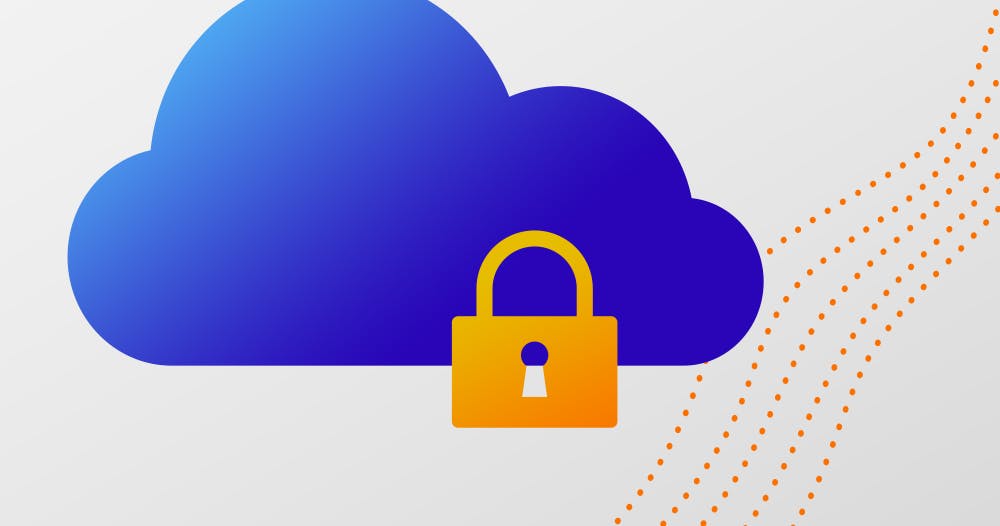We find the origins of commerce in the prehistoric times when trading became a principal facility of prehistoric people, who bartered whatever goods and services they had. Today, living in the digital era, the classical notion of commerce came into e-commerce. And since the world of retail is undergoing an unprecedented wave of innovation, e-commerce is still on the rise.
According to Statista, global retail e-commerce sales will reach $4.88 trillion by 2021.
But the growth of the e-commerce industry and the new opportunities associated with it also come with a big responsibility for online stores owners: putting security systems in place and safeguarding valuable customer data to protect both themselves and their customers. This means e-commerce security is a top priority for every online store. But before we discuss the best practices shop owners should follow, let’s see what e-commerce security is and why is it so important.
What is Ecommerce security?
E-commerce security is a set of protocols that allow e-commerce transactions to be made in a safe environment, thus protecting customers’ and companies’ data from threats like phishing attacks, hacking, credit card fraud, data errors, or unprotected online services. The inability to guarantee a safe environment will not only decrease an e-commerce store’s revenue, but it will also make its customers lose their trust.
There are six dimensions of Ecommerce security:
- Integrity: prevention against unauthorized data modification
- Nonrepudiation: prevention against any one party from reneging on an agreement after the fact
- Authenticity: authentication of data source
- Confidentiality: protection against unauthorized data disclosure
- Privacy: provision of data control and disclosure
- Availability: prevention against data delays or removal.

Why is e-commerce security so important?
Cybercrime is the biggest threat to e-commerce; the retail sector suffered the most breach incidences (16.7%) in 2017. Without proper protocols that ensure that transactions are safe, both online shops and customers are at risk, with smaller e-commerce stores being the preferred targets of cyberattacks. According to reports, one in five small business retailers falls victim to credit card fraud every year, with 60 of those stores being forced to close within six months.
And to top it off, the worst part of a data breach isn’t the loss of revenue, but the loss of your customers' trust! Do you think your customers will put their information at risk a second time? For sure not! However, using the right tools and protocols will minimize the threat of fraud and will make your customers feel safe.
What Can You Do to Strengthen the Security of Your Ecommerce Store?
What makes any online shop a target for cybercriminals is the volume and the value of data they store. To get the best e-commerce services, customers share their personal data, credit card information, and other important (and confidential!) data for registration. So how can you make sure this data remains private? Here are some best practices:
1. A rigorous Admin
No matter how many strategies and protocols you come up with, the most important thing is that rules are followed. And that begins with the person in charge of managing the e-commerce platform. To error is human, however, so having a powerful tool that can help you keep your platform secure is a must. Bunnyshell is one of the platforms that makes sure all sensitive data is stored in an encryption hardware service, all ports are blocked by default, security patches and firewalls are automatically applied to all servers and users can generate SSL certificates with one click. All that while you have automated monitoring in place. With so many things to check off your list, it can get difficult to monitor access to all of your tools and make secure deployments, and that’s when tools come in handy.
2. Multi-layered security
The purpose of a multi-layered security system is to make sure that each component has a backup. The individual strength of each layer can make up for any gap other layers may have.
One way to ensure you have multi-layered security is to use a firewall. Depending on your budget, you can use a physical firewall or a web application firewall like Cloudflare.
3. Securing connections using SSL certificate
An SSL (secure sockets layer) certificate verifies that a website has been approved as real and that the company running the website exists, as well as keeps information secure. The reason they are so important is that they indicate to users that your online store is legitimate and safe and that any sensitive information (such as passwords or credit card details) is encrypted and protected.
.jpg?ixlib=gatsbyFP&auto=compress%2Cformat&fit=max)
4. DoS/DDoS protection
A DoS/DDoS attack is a method used to deny access to legitimate users of an online service. Although DoS/DDoS attacks are becoming more frequent, most online stores don’t take precautions. There are many tools you can use to protect your online store from DoS/DDoS attacks, but one of the most known is AWS Shield.
5. Transaction monitoring
Suspicious activity can be easily detected when transactions are monitored. Setting up alert systems to flag potential threats goes a long way towards combating fraud over the Internet. One of the most common situations that can easily be prevented is when one user places multiple orders using different credit cards.
6. Address Verification
By using an Address Verification System, online shop owners can easily find out whether the billing address and the address the credit card issuer has on file match. If they don’t, there’s a high chance that the transaction is a fraudulent one. An example of such a service is Trulioo.
7. Stronger passwords
Don’t leave the process of choosing a password entirely up to the user. More often than not, they will choose easy-to-remember passwords or passwords they are already using on other platforms. Instead, you should enforce the need for a strong password (longer passwords with at least one special character and capitalization are more secure).
8. Regular updates
Outdated and unmaintained plugins frequently cause breaches. Therefore automatic updates should become a standard practice in preventing new vulnerabilities. Regular scans and frequent updates will keep e-commerce platforms safe from any unwanted attacks.
By following these security measures, online shops will ensure they have a successful, long-lasting online presence.
